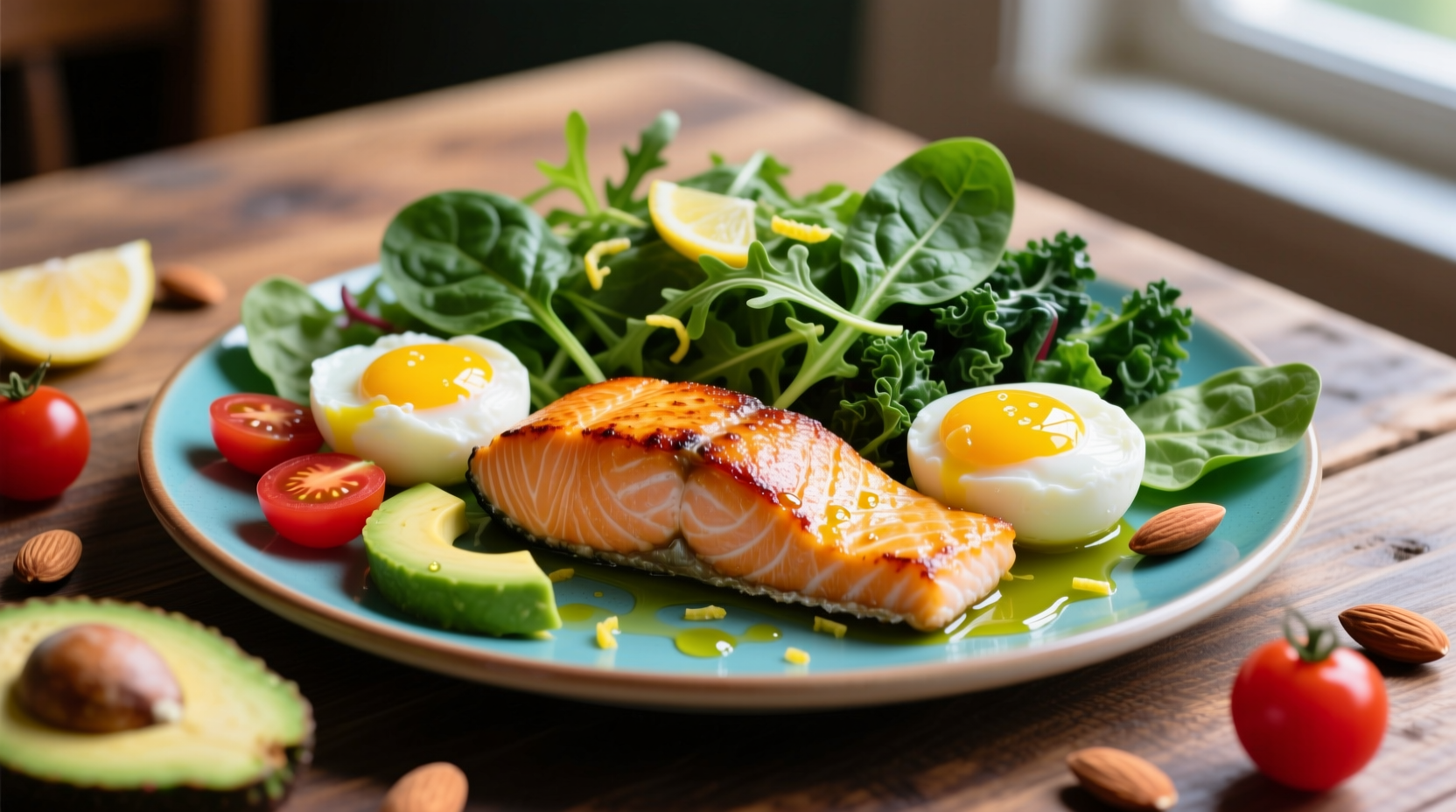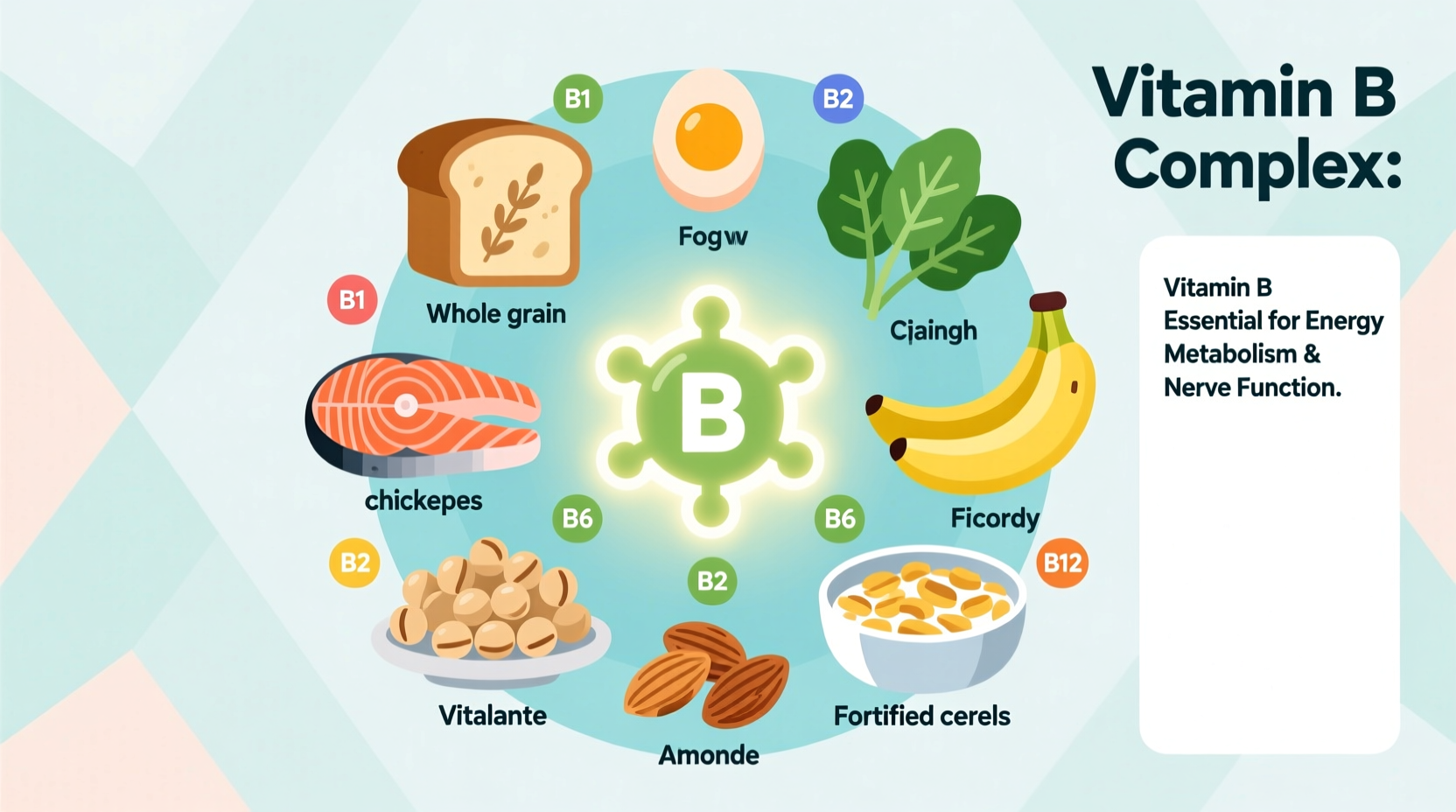If you're looking to boost your energy levels, support brain function, or improve your overall health, understanding which foods contain essential B vitamins is crucial. This comprehensive guide reveals exactly which foods provide each type of B vitamin, how much you need daily, and practical ways to incorporate these nutrient powerhouses into your meals.
Understanding the B Vitamin Family
Vitamin B isn't just one nutrient—it's a complex of eight essential vitamins that work together to support your metabolism, brain function, and cellular health. Unlike fat-soluble vitamins, B vitamins are water-soluble, meaning your body doesn't store them, so you need a regular dietary supply. Let's break down each member of this vital nutrient family and where to find them.
Vitamin B1 (Thiamine) Power Foods
Thiamine helps convert food into energy and supports nerve function. The richest sources include:
- Pork tenderloin (providing 74% of daily value per 3-ounce serving)
- Sunflower seeds (51% DV per quarter cup)
- Black beans (29% DV per cup)
- Fortified breakfast cereals (up to 25% DV per serving)
According to the National Institutes of Health, adults need 1.1-1.2 mg of thiamine daily. People following highly processed diets may be at risk of deficiency, as thiamine is often lost during food refining.
Vitamin B2 (Riboflavin) Rich Options
Riboflavin maintains healthy skin and supports energy production. Top food sources feature:
- Beef liver (providing 123% of daily value per 3-ounce serving)
- Fortified milk (26% DV per cup)
- Almonds (34% DV per ounce)
- Spinach (15% DV per cooked cup)
The NIH reports that riboflavin deficiency affects approximately 7-10% of the general population in developed countries, with higher rates among elderly individuals and those with chronic illnesses.
Vitamin B3 (Niacin) Food Sources
Niacin supports digestive health and nerve function. Excellent sources include:
- Tuna (110% DV per 3-ounce serving)
- Chicken breast (52% DV per 3-ounce serving)
- Peanuts (21% DV per ounce)
- Mushrooms (14% DV per cup)
Vitamin B5 (Pantothenic Acid) Options
Found in nearly all foods, B5 is crucial for creating red blood cells. Highest concentrations appear in:
- Beef liver (80% DV per 3-ounce serving)
- Mushrooms (67% DV per cup)
- Avocado (39% DV per fruit)
- Sunflower seeds (33% DV per quarter cup)
Vitamin B6 (Pyridoxine) Powerhouses
B6 supports immune function and neurotransmitter production. Top sources include:
- Chickpeas (55% DV per cup)
- Tuna (48% DV per 3-ounce serving)
- Salmon (47% DV per 3-ounce serving)
- Potatoes with skin (27% DV per medium potato)
| B Vitamin | Top Food Sources | Daily Value Per Serving |
|---|---|---|
| B1 (Thiamine) | Pork, sunflower seeds, black beans | 29-74% DV |
| B2 (Riboflavin) | Liver, almonds, fortified milk | 15-123% DV |
| B3 (Niacin) | Tuna, chicken, peanuts | 14-110% DV |
| B6 (Pyridoxine) | Chickpeas, tuna, salmon | 27-55% DV |
| B9 (Folate) | Spinach, lentils, asparagus | 33-66% DV |
| B12 (Cobalamin) | Clams, liver, salmon | 78-4,000% DV |
Vitamin B9 (Folate) Essential Foods
Folate is critical for DNA synthesis and especially important during pregnancy. Rich sources include:
- Spinach (66% DV per cooked cup)
- Lentils (90% DV per cup)
- Asparagus (67% DV per cup)
- Fortified grains (25-30% DV per serving)
The Centers for Disease Control and Prevention recommends that all women capable of pregnancy consume 400 mcg of folic acid daily to prevent neural tube defects, highlighting the importance of folate-rich foods in reproductive health.
Vitamin B12 (Cobalamin) Sources
B12 is essential for nerve function and red blood cell formation. The most concentrated sources are:
- Clams (4,000% DV per 3-ounce serving)
- Beef liver (2,000% DV per 3-ounce serving)
- Salmon (80% DV per 3-ounce serving)
- Fortified nutritional yeast (up to 100% DV per tablespoon)
According to research published in the American Journal of Clinical Nutrition, up to 15-20% of older adults have difficulty absorbing B12 from food due to reduced stomach acid production. Plant-based eaters must rely on fortified foods or supplements, as natural B12 sources are exclusively animal-derived.
Plant-Based Vitamin B Strategies
For vegetarians and vegans, getting adequate B vitamins requires strategic planning:
- Nutritional yeast provides complete B vitamins including B12 when fortified
- Legumes supply significant B6 and folate
- Whole grains contribute B1, B2, and B3
- Leafy greens offer folate and some B6
It's important to note that while plant foods provide most B vitamins, vitamin B12 must be obtained through fortified foods or supplements for those following strictly plant-based diets. The Academy of Nutrition and Dietetics confirms that well-planned vegetarian and vegan diets can meet all nutritional needs, including B vitamins, with proper attention to fortified foods and supplementation where necessary.

Practical Meal Planning Tips
Maximize your B vitamin intake with these practical strategies:
- Start your day with fortified cereal and milk for B2, B12, and folate
- Add chickpeas to salads for B6 and folate
- Include salmon twice weekly for B3, B6, and B12
- Snack on sunflower seeds for B1 and B5
- Use nutritional yeast as a cheese substitute for complete B vitamins
Remember that cooking methods affect B vitamin retention. Water-soluble vitamins like B can leach into cooking water, so steaming vegetables rather than boiling preserves more nutrients. The USDA FoodData Central shows that boiling spinach reduces folate content by up to 50%, while steaming preserves nearly all of it.
Special Considerations
Certain populations have increased B vitamin needs:
- Pregnant women require additional folate (B9) to prevent birth defects
- Older adults often need more B12 due to reduced absorption
- People with digestive disorders may require supplementation
- Heavy alcohol consumers often develop B1 deficiency
Consult with a healthcare provider before starting supplements, as excessive intake of certain B vitamins like B6 can cause neurological issues. Food sources provide balanced amounts that rarely lead to toxicity.











 浙公网安备
33010002000092号
浙公网安备
33010002000092号 浙B2-20120091-4
浙B2-20120091-4